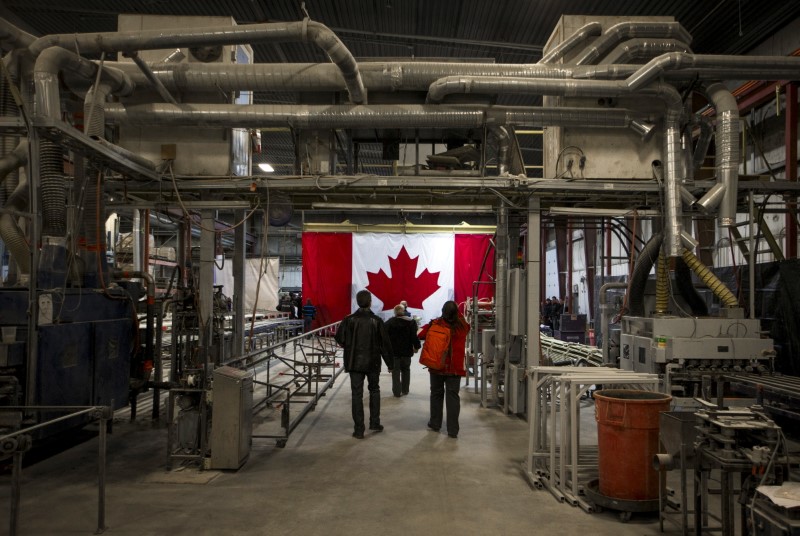By Ismail Shakil
OTTAWA (Reuters) -Canada's economy unexpectedly shed a net 2,800 jobs in July, as gains in full-time work were offset by part-time job losses, while the unemployment rate remained at a 30-month high of 6.4%, data showed on Friday.
Analysts polled by Reuters had forecast a net gain of 22,500 jobs and the unemployment rate to rise to 6.5% from 6.4% in June. An increase in unemployment was largely expected due to rapid population growth which the labor market has not able to absorb.
The average hourly wage growth of permanent employees slowed to an annual rate of 5.2% from 5.6% in June, Statistics Canada data showed. The pay growth rate is closely tracked by the Bank of Canada (BoC) because of its effect on inflation.
July was the second consecutive month of job losses and added to signs of easing in Canada's labor market, which would support the case for the central bank to lower interest rates again at its next announcement in September.
The unemployment rate, highest since 6.5% in January 2022, has been on an upward trend and has risen 0.7% percentage points since January.
The participation rate of Canada's labor force also declined to a 26-year low of 65% in July, largely reflecting a cohort of people not looking for jobs.
The Canadian dollar extended loses slightly and weakened 0.12% to 1.3744 against the U.S. dollar, or 72.76 U.S. cents. Yields on the Canadian government's two-year bonds dropped by 2.5 basis points to 3.451%.
Friday's data follows a dismal jobs report last week from the United States, which ignited worries about Canada's biggest trading partner slipping into a recession.
Citing progress towards achieving its 2% inflation target, the bank has lowered its key overnight rate twice in as many months and indicated it was now increasingly concerned about the chances of weaker-than-expected growth.
Ahead of its last rate cut announcement on July 24, the bank noted that economic growth had been slower than population growth, leading to an excess supply in the economy and slack in the labor market.
Money markets have priced in another 25 basis point cut at the bank's next rate announcement on Sept. 4, and some even see a slim chance of a 50 basis point cut.

The job losses in July were entirely in part-time work, which shed 64,400 positions and more-than offset a gain of 61,600 full-time jobs - the highest since February.
Employment in goods-producing sectors increased by a net 12,000 jobs, led by construction and utilities, while the services sector lost a net 14,800 jobs, mostly in wholesale and retail trade and in some finance-related jobs.
